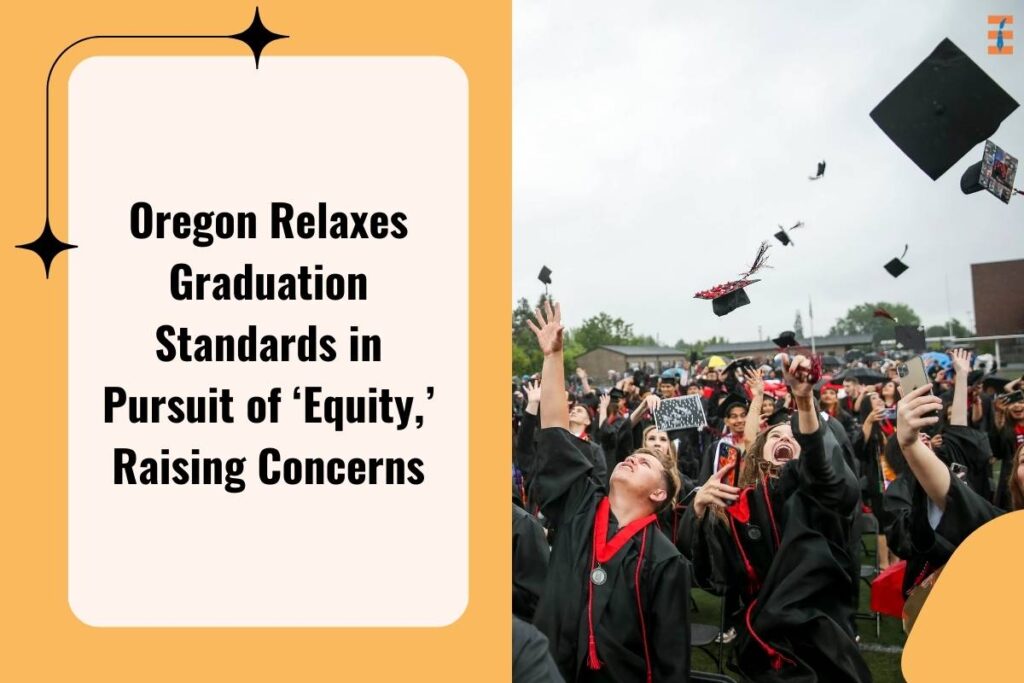In a significant shift in the landscape of public education, the Oregon Department of Education has recently declared that fundamental reading, writing, and math skills will no longer be prerequisites for high school graduation. This move has raised concerns about the quality of Oregon education.
Assessment of Essential Skills
Before the passage of Senate Bill 744 during the 2021 session of the Oregon Legislative Assembly, the state had a reasonable “Assessment of Essential Skills” requirement for high school graduation. This requirement mandated that students must “read and comprehend a variety of text, write clearly and accurately,” and “apply mathematics in a variety of settings.” To demonstrate their proficiency in these skills, students had to earn scores at or above the cut-off level on the Oregon Statewide Summative Assessment test.
Citing the disruptions caused by school closures due to the COVID-19 pandemic, SB 744 called for a review of the “requirements for high school diploma options.” In response to the pandemic-related learning loss, the bill led to the suspension of Oregon’s essential skills proficiency requirement through the 2023-24 school year.
Recently, the Oregon State Board of Education voted unanimously to extend this suspension further, pushing it through the 2027-28 school year. Board members, in collaboration with Oregon Department of Education leadership, argued that standardized tests presented a “harmful hurdle for historically marginalized students” and were an inappropriate use of state assessments.
Standardized Tests are Inaccurate and Inequitable
The Oregon Education Association (OEA), a union representing more than 40,000 teachers across the state, shared similar reservations about standardized testing. According to the Oregon Education Association, “Standardized tests are inaccurate, inequitable, and don’t accurately measure student learning and growth.” The union goes further to characterize standardized tests, such as Oregon’s Statewide Summative Assessment, as “instruments of racism and a biased system.” Notably, the OEA played an active role in the development and passage of SB 744 during the last legislative session. The union’s Special Education Committee contributed to the bill’s development and lauded its passage, emphasizing “several equity concerns” regarding Oregon’s essential skill requirements.
Since Oregon waived its essential skill requirements for high school graduation, graduation rates have seen a substantial increase. The class of 2022 achieved a record-high four-year graduation rate of 81.3 percent, the second-highest ever recorded in the state. However, this spike in graduation rates does not necessarily reflect the students’ skills, as only 43 percent of that year’s graduating class demonstrated proficiency in English and less than 31 percent in math.
The Oregon Education Association’s mission is twofold: representing its members and ensuring quality public education for students in Oregon. Critics argue that advocating for policies that eliminate the need for students to attain fundamental language and math skills before graduating places Oregonian graduates at a significant disadvantage while compromising the quality of public education.
The Oregon Education Association has experienced a decline in membership, dropping by 4.4 percent between 2020 and 2022. This trend suggests that teachers in Oregon are becoming increasingly aware of the consequences of teachers’ unions prioritizing ideology over the well-being of teachers and students.
As Oregon contemplates further changes to its public education system, parents, teachers, and concerned citizens must hold the state accountable while closely monitoring the actions of organizations like the Oregon Education Association, which are viewed by some as contributing to a concerning future for public education in the state.










